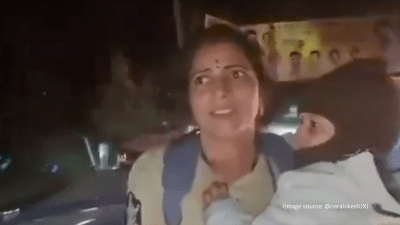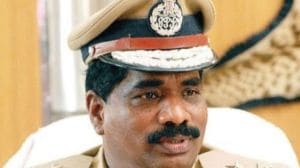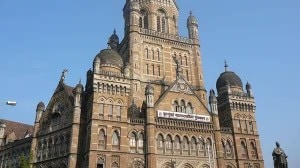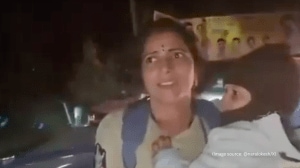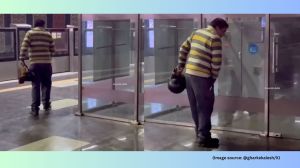Catching terror by its two-decade tail
In May 1985, serial blasts in Delhi and neighbouring cities killed 69 and injured 127 people. Twenty-one years later charges were filed in three cases this month. Siddhartha Sarma finds out just what took so long

It was the first major terrorist attack in northern India. Twenty-one years later the trial is still to begin. In the intervening years, some of the accused have died, judges, investigating officers and lawyers have had their turns and the victims have moved on. If there8217;s anything that hasn8217;t really moved, it8217;s the trial in the nine related cases. In the latest development 8212;if one can call it that8212;on May 7 this year, charges were framed against four accused in three cases8212;in 2004 charges were framed for the first time in three cases. Charges are yet to be framed in the remaining three.
Over a fortnight in early May 1985, a series of explosions rocked the Capital and cities in Northern India. In Gandhinagar, Khayala, Ghaziabad, Panipat, Meerut, on trains and buses heading out of Delhi, citizens found and picked up transistor radio sets. The sets were rigged to blow up when the transistor circuits were completed.
Although the explosives were of low intensity, the serial blasts, more than twenty-five in total, left 69 dead and 127 injured and succeeded in spreading terror among citizens.
On May 12 that year, Patel Nagar police raided the house of Kartar Singh Narang at Delhi8217;s West Patel Nagar and seized several cabinets of transistor radios, explosive substances, detonators and handguns. Narang, an income-tax lawyer and a member of the bar association at Tis Hazari courts, allegedly confessed to the police that he had masterminded the terror strikes to avenge the 1984 massacre of Sikhs. Investigations were later to reveal the alleged role of expatriate Sikhs as well.
Police also arrested Mohinder Singh Oberoi of Karol Bagh, Kartar Singh8217;s wife Surjit Kaur, Inderpal Singh Bhatia of Malka Ganj, Sabzi Mandi, Manmohan Singh Khalsa of Tagore Garden and Gurdev Singh of Shastri Nagar in Delhi, as the alleged co-conspirators.
While the Patel Nagar police got what they claimed was the core of the conspiracy, other police stations in Delhi were equally busy. Between May 10 and May 14 that year 37 FIRs were lodged by different police stations in Delhi itself.
Bringing order to chaos
ON February 27, 1986, the Supreme Court made an attempt to bring some order to the chaotic investigation. A three judge-bench directed that three cases, which were connected to the 8216;8216;main case8217;8217; of Patel Nagar be clubbed as one.
However, the other cases continued to remain in the sessions courts in different states where the blasts occurred, despite investigators being told that the blasts were part of a single conspiracy and could also be clubbed together for a speedy trial.
Seven years after the blasts, there was still no headway in the trial, although in the Patel Nagar case, the police had filed the chargesheet in August 1985, charging Narang, Manmohan Khalsa and Mohinder Oberoi with murder, attempt to murder, various provisions of the Explosive Substances Act and criminal conspiracy under the IPC.
In 1992, Surjit Kaur, Kartar Singh Narang8217;s wife and another accused, Mohinder Singh Oberoi, filed a transfer petition in the Supreme Court pointing out the obvious: that since there were a large number of cases against them in various cities connected with the same event, all of them be clubbed together.
The Supreme Court directed that the case records be transferred to a trial court in Delhi from all the other cities. The cases are currently in the court of additional sessions judge at the Patiala House courts in New Delhi.
Twelve years later in 2004, charges were framed in three cases against Surjit Kaur and Mohinder Oberoi, relating to explosive substances, murder, attempt to murder and criminal conspiracy. The cases are still under trial. Kartar Singh Narang died six years after the Supreme Court order. Charges have still not been framed in the Patel Nagar case.
Meanwhile, the accused have moved on too. Kartar Narang8217;s wife Surjit has shifted from her West Patel Nagar house, and so has MS Oberoi from his Karol Bagh home. The Sunday Express went looking for Manmohan Singh of Tagore Garden and Gurdev Singh of Shastri Nagar but found that they shifted over a decade ago.
Three down, three to go
ON May 7 this year charges were framed on three other cases related to the blasts. In one case, Tarjeet Singh, Sarabjeet Singh and Daljeet Singh, have been charged with murder of three people and causing injury to three in Ghaziabad in a blast on board a DTC bus in May 1985.
In the second case, Ravinder Pal Singh has been charged for planting a bomb on a train bound for Aligarh. Daljeet Singh has been charged with attempt to murder for having planted a transistor bomb on a bus bound for Ghaziabad, which, however, was detected and defused. Charges are yet to be framed in the remaining three cases.
What took so long?
THE delay, according to Harvinder Kaur, who has represented some of the accused since the beginning of the trial, began with the several independent police investigations and the fact that the blasts occurred in differenr spots in different states. Though in 1992 the Supreme Court had allowed that all related cases be shifted to Delhi from other cities, the case material were not transferred on time. Police and medical records, witness statements, statements of the accused and other documents were not transferred on time.
Exemptions were sought and granted on several occasions. The prosecution from the government8217;s side was changed every six months, and every new prosecutor on the job had to consult the case backgrounds. It took five years for the case documents to be transferred to Delhi, with the prosecution counsel repeatedly informing the trial court that the investigating agencies in the neighbouring states were not co-operating.
In the end, all this has meant just one thing: the trial is yet to begin for a terror attack that shook India in 1985.
In the dock
Inderpal Singh Bhatia, a resident of Malkaganj, was accused for the blasts on trains going to Aligarh, Ghaziabad and Sahibabad. Soon after, he shifted to Jalandhar in Punjab.
8216;8216;It was all politically motivated since I confronted them bravely in the 1984 riots. Our whole family was separated because of the accusation. We had to sell our house and shift to Punjab. I fear that they might press charges against me in the next hearing on May 18,8217;8217; Bhatia, 68, told The Sunday Express over the phone from Jalandhar. Bhatia ran a shop of clocks then in Lajpat Rai Market. 8216;8216;I was a very much involved in religious activities and was even close to Prakash Singh Badal then. On May 10, we conducted a ceremony in Malkaganj Gurdwara under which we are supposed to distribute the small dagger that Sikhs are supposed to carry, apart from other things. They picked me up the next day and accused me of distributing weapons,8217;8217; says Bhatia.
Ravleen Kaur
Adding years and numbers
8226; May 1985 blasts left 69 dead, 127 injured
n Fifty accused arrested. Five, including main accused Kartar Narang dead. Twelve declared proclaimed offenders. Four arrested but let off
8226; Total number of witnesses: 1,109
8226; Total number of FIRs in Delhi: 37
8226; It8217;s been 20 years since the first Supreme Court transfer order
8226; It8217;s been 14 years since the SC ordered all cases to be grouped together
8226; Charges yet to be framed in the main case of May 12, 1985
- 01
- 02
- 03
- 04
- 05


